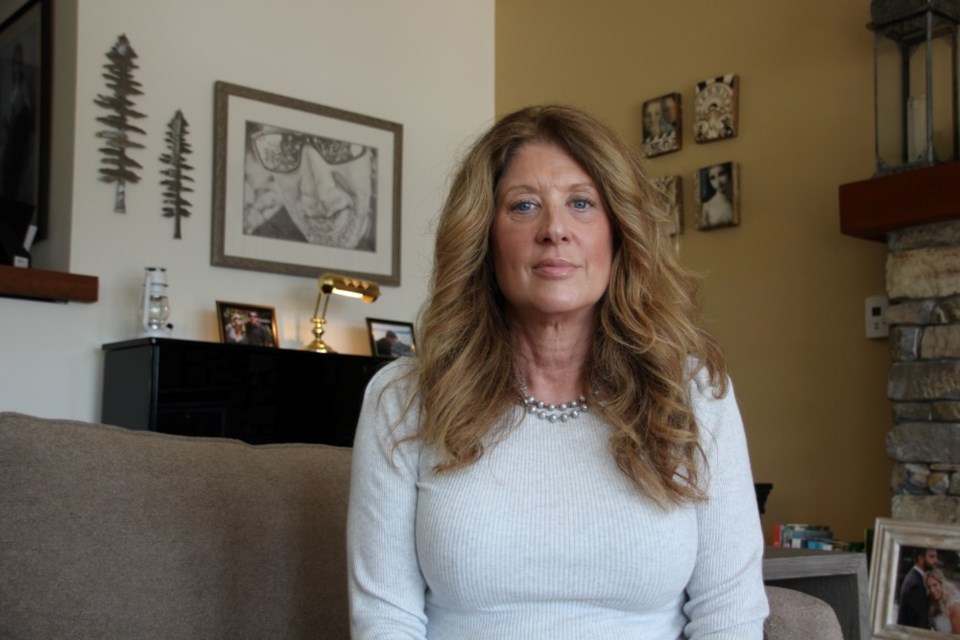Nearly eight years after Myles Gray died, his family is relieved that the circumstances surrounding the 33-year-old’s death have finally come to light.
Margie Gray was at home in Garden Bay when she heard the jury’s classification of her son’s death as a homicide. The jury released its verdict on May 1, after more than 10 days of witness testimony during the inquest into Myles Gray’s death. Four of the five jurors were in agreement.
Margie attended 10 days of the inquest in person. When she first heard the inquest was scheduled, she said she was not planning to attend.
“I didn’t want to be there,” Margie told Coast Reporter on May 2, the day after the inquest concluded. “But somebody said to me, ‘Those cops might be relieved you’re not there.’ And I said, ‘Well, I’m not going to give them that.’” For two weeks, she treated the inquest like a full-time job. It was exhausting and emotionally taxing, she said, but she got to see the procedure and her “rockstar” legal team at work.
“I wanted to hear it for myself firsthand. I think I needed to be there, being Myles’s mother,” Margie said. His sister and father, among other family members and supporters, attended when they could.
Powell River-Sunshine Coast MLA Nicholas Simons attended several days of the inquest. In an April 18 interview, he said he hoped the inquest would help Gray’s family answer long-standing questions.
Margie said there was a lot the family did not know about that was publicly aired for the first time, including graphic details about police use of force. Particularly meaningful to Margie was when the forensic pathologist who performed Gray’s autopsy, Dr. Matthew Orde, told the inquest that based on the evidence and circumstances, “I don’t think he would have died when he did had it not been for the police interaction on that day.”
More than seven police officers had responded to a call in Burnaby on Aug. 13, 2015. After a prolonged struggle to restrain Gray, he died at the scene.
Another moment that stood out to Margie was when the toxicologist testified that he changed his original finding. An initial drug screening reported that Gray had a natural psychoactive compound in his system when he died, but follow-up testing showed the drug was either not present or below the detection threshold.
“I won’t say I’m happy, but I’m relieved,” Margie said. “We’re all relieved that the truth is finally out there.”
Three recommendations
With the verdict, the jury made three recommendations to the Vancouver Police Department and Provincial Health Services Authority: that all patrol officers must have body cameras with audio, to review and enhance the crisis de-escalation and containment training officers receive, and that the health services authority consider reviewing the policy about the retention of toxicology samples for investigations.
The Gray family has been pushing for body cameras for police officers for at least six years, Margie said. While she is in favour of de-escalation, she believes other people besides law enforcement should be involved in responding to mental health crises.
“We need to be treated like humans on the streets, every one of us,” Margie said.
As for the toxicology samples, Margie said she is more interested in the police officers involved in violent altercations or death, and said they should also have their blood samples tested.
Possible next steps
Ian Donaldson, the lawyer for the Gray family, told media that there’s a good argument that Gray’s file should be looked at again by the BC Prosecution Service, since evidence presented in the inquest is different from what the pathologist had to work with in 2015.
The Independent Investigations Office of BC would need to resubmit the file to the BC Prosecution Service to be reassessed. In Dec. 2020, the Prosecution Service opted not to approve charges against the officers involved.
According to a media liaison for the IIO, “The IIO is taking the time to assess the evidence from the inquest and will make a decision once that process is complete.”
In 2016, the Gray family filed a civil suit, which has yet to be scheduled. On the first day of the inquest, Melissa Gray, Myles’s sister, told media that the officers involved in her brother’s death should be fired.
It takes a village
Of the support from people on the Sunshine Coast, including Powell River and Sechelt, Margie said, “It literally took a village to keep us going.”
At her home in Garden Bay, Margie becomes emotional when asked what she would want Myles to know. She said, “That we all fought so hard to get the real story out. And it took a team of people — Ian Donaldson, Jason Birring, it took Curtis Armitage, all the media.
“We knew the real truth right at the very beginning. He just needs to know, and I’m sure he does know, how loved and missed he is by his family and his friends. We worked so hard for the outcome of yesterday.
“I’m just relieved it’s all over.”
With files from Brenna Owen, Canadian Press



